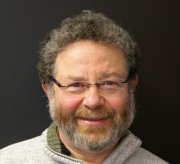Pikovski Arkady S.

Additional info
Arkady Pikovsky was born August 7, 1956 in Gorky (now Nizhny Novgorod), Russia. In 1972–1977 was educated in Gorky State University, Department of Radiophysics. Principal subjects: Physics, Theoretical Physics, Pure and Applied Mathematics, Theory of Oscillations and Waves, Quantum Electronics, Radiophysics (1977 Diploma with Honour). In 1982 he got PhD in Physical and Mathematical Sciences, awarded by Gorky State University, topic: “Chaotic oscillations in radiophysical systems”, the supervisor - Professor M. I. Rabinovich. In 1995 Habilitation at the University of Potsdam, topic: “Dynamics of perturbations in chaotic dynamical systems”.
Academic position: 1977–1990 Institute of Applied Physics, Russian Academy of Sciences, Nizhny Novgorod, Russia: Junior Scientific Researcher, Scientific Researcher, Senior Scientific Researcher, 1990–1992 Humboldt-Fellow at the University of Wuppertal, Germany, host: Prof. Dr. P. Grassberger, 1992–1996 Researcher at the Max Planck Nonlinear Dynamics Group, Potsdam University, since 1997 C3–Professor for Theoretical Physics (Statistical Physics/Theory of Chaos), Potsdam University. Teaching: 1994–present lecture courses on Dynamics of nonlinear continuous systems, Hamiltonian and quantum chaos, Nonlinear physics, Stochastic processes and statistical methods, Theory of Chaos, Computational physics; General courses on Theoretical Physics I–V: Mechanics, Electrodynamics, Quantum Mechanics, Statistical Physics and Thermodynamics, Advanced Quantum Theory.
Research Topics: Synchronization (Complex regimes of synchrony in populations of oscillators, Synchronization of chaotic systems, Phase synchronization, Synchrony in neural networks, Control of synchrony, Compactons in oscillator lattices, Chimera states); Disordered nonlinear systems (Chaotic destruction of Anderson localization, Thermalization in nonlinear disordered lattices, second sound modes); Statistical Physics of Space-Time Chaos (Chaotic mixing in fluids, Lyapunov exponents and synchronization of space-time chaos, Systems with multiple time scales); Noise-Induced Phenomena (Coherence Resonance, System-Size-Resonance, Effects of noise and delay, Stochastic models of chaos, Reliability); Data Analysis (Finding coupling and synchrony from data, Applications to physiological and physical systems).
